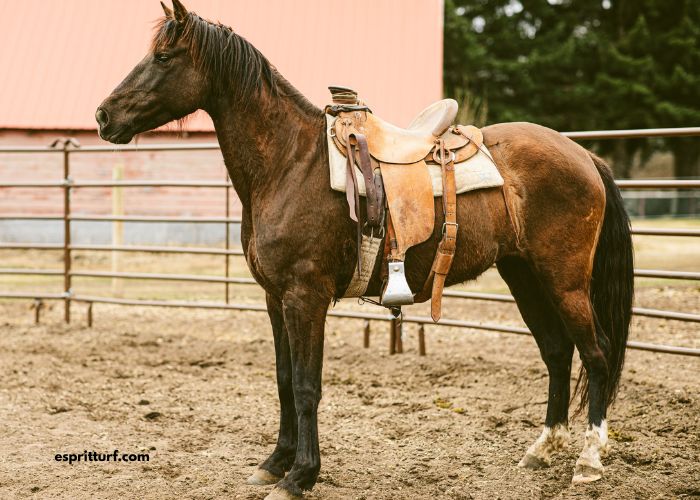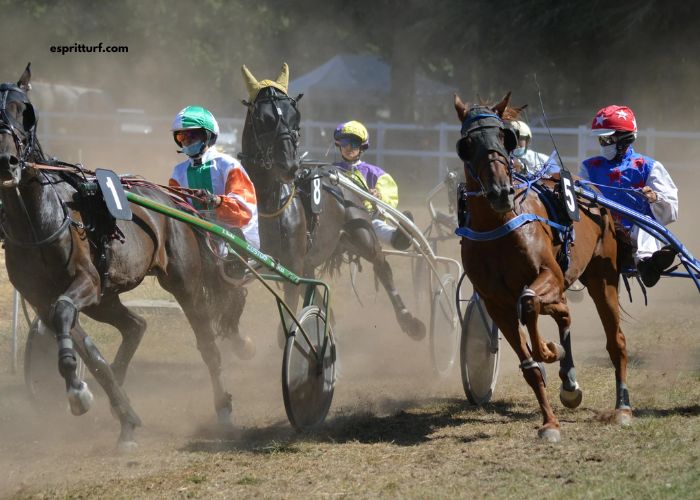Elimination Des Chevaux plays a vital role in the world of horse racing, particularly in events where only a select number of competitors can continue to the final stages. This process involves eliminating horses from a race based on specific criteria such as performance, strategy, and race conditions.
Understanding Elimination Des Chevaux is essential for bettors, trainers, and fans alike as it can have a significant impact on race outcomes. In this article, we’ll dive deep into the concept of Elimination Des Chevaux, exploring its purpose, how it works, and its impact on the racing industry.
In the competitive world of horse racing, Elimination Des Chevaux provides a mechanism for narrowing down the field to the most promising horses, which can make for a more exciting and fair competition.
Whether you’re a bettor trying to gain an edge or simply a fan of the sport, understanding how this process works is key to fully appreciating the dynamics of horse racing. Throughout this article, we will answer common questions about Elimination Des Chevaux, highlight its significance, and explain how it influences both the horses and the betting community.
What Is Elimination Des Chevaux?
Elimination Des Chevaux refers to the process by which horses are gradually eliminated from a race or a series of races leading up to a final event. This is typically done in events that feature a large number of horses, and only a select few are able to continue in the competition.
The purpose of Elimination Des Chevaux is to streamline the field and ensure that only the most competitive horses make it to the final stage of the event. This process is particularly common in high-stakes races where multiple qualifying rounds are held before the ultimate race.
The elimination process works by assessing the performance of each horse throughout the race or series of races. Horses that fall behind or fail to meet specific performance standards are gradually eliminated, leaving only those that have demonstrated exceptional abilities to continue. Elimination Des Chevaux is a fair way to ensure that the most skilled and prepared horses advance, creating a more competitive and exciting final race.
How Does Elimination Des Chevaux Impact Horse Racing?
Elimination Des Chevaux has a profound impact on the dynamics of a horse race. First and foremost, it creates a sense of progression, with each elimination round leading to a more focused and high-level competition. This process allows trainers, bettors, and fans to gauge the abilities of the horses as they advance through each stage. By eliminating the weaker competitors early on, Elimination Des Chevaux ensures that only the strongest horses remain, making for a more thrilling and competitive final race.
The impact of Elimination Des Chevaux is also felt in the betting community. Bettors often analyze the performance of horses during the elimination rounds to make predictions about which horses will perform best in the final.
The strategic element of betting becomes much more prominent when Elimination Des Chevaux is involved, as it adds an extra layer of complexity to predicting outcomes. For trainers and jockeys, the process also emphasizes the importance of peak performance, as a single misstep during an elimination round could mean the difference between advancing and being eliminated.
Why Is Elimination Des Chevaux Important for Horse Racing Events?
The importance of Elimination Des Chevaux in horse racing events cannot be overstated. This process is crucial for maintaining the integrity of the competition. Without elimination rounds, large events would be overcrowded and would lack the level of competition necessary to determine the true champion.
By eliminating horses that do not meet the necessary performance standards, Elimination Des Chevaux ensures that the final race features only the most talented and competitive horses.
Moreover, Elimination Des Chevaux plays a key role in enhancing the drama and excitement of horse racing. It builds anticipation as spectators follow the progress of their favorite horses through each elimination round.
The process also adds a strategic element to the sport, as trainers and jockeys must carefully plan how they approach each stage of the race to ensure that their horse advances. For bettors, this means more opportunities to engage with the event and make informed decisions about which horses are most likely to succeed.
How Does Elimination Des Chevaux Affect Bettors?
For bettors, Elimination Des Chevaux provides a unique opportunity to engage with the race in a deeper way. As horses are eliminated from the competition, bettors can analyze the performance trends and adjust their predictions accordingly. The process of elimination allows bettors to observe which horses are improving or declining in performance, giving them crucial insights into who may succeed in the final.
Additionally, Elimination Des Chevaux can influence betting strategies, as it allows bettors to place more targeted bets. For example, if a horse performs exceptionally well in an elimination round, it may indicate that the horse is in peak condition and ready for the final race. Bettors can use this information to place more confident wagers, potentially leading to higher returns. The elimination rounds also give bettors a chance to assess the competitiveness of the field and identify horses that are more likely to succeed in the final event.
What Are the Different Types of Elimination Des Chevaux?
There are several different types of Elimination Des Chevaux, each serving a slightly different purpose depending on the nature of the event. The most common type is a series of qualifying races, where horses must finish within a certain position to advance to the next stage. In some cases, Elimination Des Chevaux may involve a single elimination round, where the horses with the worst performances are removed from the race.
Another variation of Elimination Des Chevaux is known as a “semi-final elimination.” In this case, the field is narrowed down over several rounds until only a small number of horses remain for the final event.
This type of elimination is often used in major racing events that involve a large number of horses, ensuring that the final race features the best of the best. No matter the format, Elimination Des Chevaux serves to create a more competitive environment, with each elimination round serving as a test of the horses’ skills and endurance.
How Are Horses Eliminated During Elimination Des Chevaux?
Horses are eliminated during Elimination Des Chevaux based on their performance in the race or series of races. Typically, the bottom finishers in each elimination round are removed from the competition.
However, the criteria for elimination may vary depending on the specific event. In some cases, horses may be eliminated if they fail to meet certain time standards or if they exhibit poor form during the race.
In other events, the elimination process may involve a more strategic approach, where trainers and jockeys are required to position their horses in a certain way to ensure they qualify for the next stage.
This adds an extra layer of complexity to the race, as participants must not only focus on speed and skill but also on strategy and positioning. Elimination Des Chevaux ensures that only the most capable horses continue to the final, creating a more exciting and competitive conclusion to the race.
Conclusion
In conclusion, Elimination Des Chevaux is a critical component of horse racing events that serves to enhance the quality of the competition. By eliminating horses based on their performance, this process ensures that only the strongest competitors remain for the final race, creating a more exciting and fair contest.
For bettors, trainers, and fans, understanding Elimination Des Chevaux is essential for appreciating the full scope of a race and making more informed decisions. Whether you’re placing bets or simply watching the action unfold, the process of elimination adds a layer of strategy and anticipation that makes horse racing all the more thrilling.



